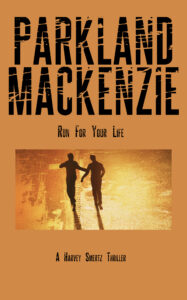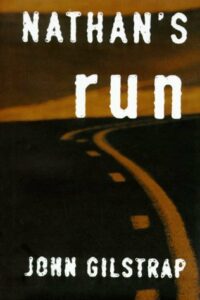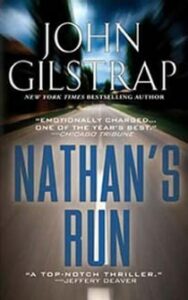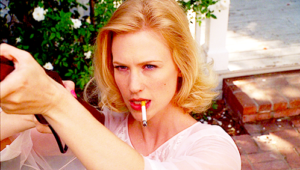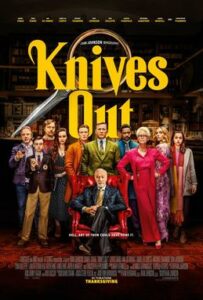By PJ Parrish
Morning, crime dogs. We have another First Page submission to chew on today. It has things to teach us about picking a point of view. And a big hat tip to our writer who has pushed her/his baby out there for our scrutiny. Remember…that takes guts.
SCARLET LIES
Scarlet crossed the multi-lane city street without checking for oncoming traffic. They would stop. And if they didn’t, what of it? A few horns blared and she clicked her heels across the road, the sun blaring in her eyes through the smog and haze. A man sat across the street, watching the foot traffic from a cafe table. He drank from a small, cream-colored mug.
Was that him?
Yes. It was. It was him. She couldn’t believe she saw him there, just on the other side of the street, drinking coffee, existing. How long had it been? Two years?
“Guy! Hey! Guy!” She hustled, her voice screeching and her gait reminiscent of a baby calf with awkward, tiny steps. Her skirt was tight, the shopping bags she carried were bulky, and her stilettos were sharp. The traffic did stop for her.
The man turned and watched her wobbling approach. She was grinning. He was not.
He said nothing, creasing his brow and sipping his coffee. He ended the call he was on. Slid his phone into his pocket. His olive complexion had deepened in the summer sun, and he had opted not to shave for a few days, giving him a rough, careless appearance.
She was radiant, elbowing people out of the way to get to him and straightening her walk.
“Guy! How are you? It’s been forever!” She was breathless. She stepped through the cafe gate and sat at the table with him. She raised her hand at a server, waving her over. A young woman approached and looked at the two of them, waiting. Scarlet looked at Guy, and blinked a couple of times.
“The lady will have an extra-hot Americano with a half-pump of hazelnut and a pitcher of cream on the side, please.” He looked up at the waiter apologetically.
“Oookay. One very special nearly hazelnut Americano and some creamer coming up.” She forced a smile, rolled her eyes and walked away. Scarlet beamed at Guy, biting her lip.
“You remember my coffee. You were always so thoughtful. How are you, though? Really?” She leaned towards him.
He looked at her for a moment, not returning the smile. “I’m good. I’m surprised to see you, Scarlet. Out in the wild.”
“Really? Why is that?”
He didn’t answer. He sipped his coffee and stared at her.
“I’ve missed you so much.”
“I doubt that.”
__________________________
Well, right off the bat my first question is: What kind of book am I reading here? Given the description of the woman and the interplay with the mystery man, it feels a little on the romantic suspense side or maybe we’re in cozy territory. Which is fine, if that is where the writer is going. If this is straight mystery or suspense, then this opening, with its emphasis on the woman’s clothing, shopping bags, shoes etc., is off in tone. It’s hard to tell. So we are left to judge it as it is, absent the helpful context of cover art or back copy. The title SCARLET LIES could be anything, but it suggests to me a lighter tone.
Now about point of view. We are firmly in Scarlet’s POV at the start because we get her thoughts about the cars not stopping and her wondering if the man is the cafe is “him.” But as we get deeper into the scene, the POV wavers a tad, floating up into semi-omniscient or even into the man’s POV when the writer starts describing her stilettos and her screeching voice and awkward gait. Who is making these observations? She cannot, so it is either the man in cafe (which is a head-jumping POV shift) or it is the writer herself (which is a shift to omniscient). It’s good that the writer is coming up with specifics in the descriptions but they must be grounded in a single POV to be effective.
Now, what is happening in this scene? Not too much really. A woman, apparently just finishing shopping, spots a man in a cafe, someone from her past, and initiates an encounter. The man seems blase, almost irritated. Oddly, though, he doesn’t seem at all surprised to see her even though it has been “forever.” Is this enough to make us want to read on? I don’t think so. There’s not enough meat here in the encounter and the woman, to be frank, is ditzy to the point of being annoying. Guy, on the other hand, by his simple indifference, seems more interesting. I can’t tell who the protagonist is here. I hope it’s not the woman because, as I said, I think she comes across as silly. If Scarlet IS the protagonist, then I think there’s a problem in asking readers to attach themselves to such a flimsy character.
If Guy is the protag, then I suggest the writer switch this scene to his point of view only. It could be much more interesting. Let me demonstrate:
Guy Talbot ended his call and laid the phone face down on the cafe table. He was tempted to turn the damn thing off because he was tired of being on call and just wanted to be alone. Just for one afternoon. That’s why he had picked the Tiffany Cafe on Rodeo Drive. No one he knew would ever show up here.
He was about to pick up his coffee cup when a flash of red across the street caught his eye. A trailing blazing of red hair, and a glimpse of tight red skirt visible through the bounce of Prada and Hermes shopping bags.
Jesus, what that her? Of course it was. No woman on earth had hair that color. He hadn’t seen her in five years. What the hell was she doing here in Los Angeles?
He picked up his sunglasses to hide behind. Too late. She spotted him.
“Guy! Guy!” she yelled.
She started across Rodeo Drive without looking. No matter. The cars would stop for her. They always did. Sure enough, a guy in a Ferrari stopped, the screech of his tires matching her voice.
I did this not to rewrite your work but to demonstrate what a difference a secure point of view can make. All description needs to be filtered through a solid POV. So pick one and stay in it. Now I’d like to do some line editing to specifically show where the point of view has issues.
Scarlet crossed the multi-lane city street without checking for oncoming traffic. Is this a compelling enough sentence to open a book? I think you could do better. They would stop. And if they didn’t, what of it? Ditzy thought…if they don’t stop, she’d get hit. A few horns blared and she clicked her heels She didn’t click her heels; her heels made click-clacking sounds…big difference and it goes to POV across the road, the sun blaring in her eyes through the smog and haze. A man sat across the street, watching the foot traffic from a cafe table. He drank from a small, cream-colored mug. This observation must come from her POV. She spotted or saw a man sitting in a sidewalk cafe WHERE? You need to tell us where we are.
Was that him?
Yes. It was. It was him. She couldn’t believe she saw him there, just on the other side of the street, drinking coffee, existing. I don’t understand this. How long had it been? Two years?
“Guy! Hey! Guy!” Set your dialogue off on its own line before you go into movement.
She hustled, odd and unflattering word. She hurried? her voice screeching and her gait reminiscent of a baby calf with awkward, tiny steps. Here is where you really lose your POV. She would not describe her own voice as a screech nor would she compare herself to a calf. Her skirt was tight, the shopping bags she carried were bulky, and her stilettos were sharp. The traffic did stop for her.
The man turned and watched her wobbling approach. This feels like you are now in Guy’s POV. She was grinning. He was not.
He said nothing, creasing his brow and sipping his coffee. Again, you are now in his POV. She hasn’t arrived at his table yet. He ended the call he was on. Slid his phone into his pocket. His olive complexion had deepened in the summer sun, and he had opted not to shave for a few days, giving him a rough, careless appearance. Now we seem to be in omniscient POV. This is you observing, not Scarlet. It’s good to describe him this way but it MUST come from her not you.
She was radiant, Another POV lapse. She cannot see herself as “radiant” which is in itself an odd description. elbowing people out of the way to get to him On the sidewalk? and straightening her walk.
“Guy! How are you? It’s been forever!” Again, separate dialogue from movement. It’s cleaner.
She was breathless. She stepped through the cafe gate and sat at the table with him. What happened to all the shopping bags? She raised her hand at a server, waving her over. A young woman approached and looked at the two of them, waiting. Scarlet looked at Guy, and blinked a couple of times.This is one of her gestures that strikes me as ditsy
“The lady will have an extra-hot Americano with a half-pump of hazelnut and a pitcher of cream on the side, please.” He looked up at the waiter she’s a woman apologetically.
“Oookay. One very special nearly hazelnut Americano and some creamer coming up.” She forced a smile, rolled her eyes and walked away. Giving the waitress this line adds nothing. It wastes space in your precious opening moments. Have her just leave.
Scarlet beamed at Guy, biting her lip. More ditziness. “You remember my coffee. You were always so thoughtful. How are you, though? Really?” Here’s an example where your dialogue isn’t working hard enough. We are in the first page or two of your story. Make every word count! She leaned towards him.
He looked at her for a moment, not returning the smile. “I’m good. I’m surprised to see you, Scarlet. Out in the wild.” I really like this line. It is the first punch of suspense as it implies she has some kind of weird past. It also makes Guy interesting.
“Really? Why is that?”
He didn’t answer. You really need to amp up the tension in this scene so having him answer nothing after he laid out that great “out in wild” line feels limp. I think you missed a big opportunity to layer in some badly needed background between these two or give him more thoughts about her past or his own. MAKE YOUR DIALOGUE WORK HARDER. He sipped his coffee and stared at her.
“I’ve missed you so much.” Who is talking? Makes a big difference! I’m guessing it’s her given her fawning tone.
“I doubt that.” As I said, Guy’s recalcitrance makes him more appealing as someone I would be interested in following for a couple hundred pages.
Okay, so to sum up, I think you need to brush up on point of view, especially as it applies to description. You also need to make your dialogue more muscular. What do I mean by that? You need to make every line mean something. Every word and line has to contribute to your dramatic point.
Most important, you need to find a way to inject more interest and tension into this scene. A chance meeting between two characters who had a past together isn’t meaty enough unless you layer in some intriguing undercurrents. Ask yourself: What is the POINT of this scene? What am I trying to accomplish? An effective opening has to introduce your main character, tell us where we are (you need to add that) and most importantly, begin to establish some kind of disturbance.
Thanks writer, for letting us get a peek at your work. Don’t get discouraged. As Hemingway said, “The first draft of anything is always junk.” Although trust me, he used a much stronger word. 🙂 Hope you find this helpful.


